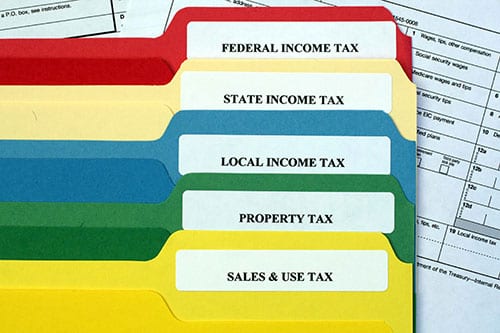Partnership and S Corporation Related IRS Notice of Tax Deductibility
Benjamin Franklin was certainly correct when he said in a letter to Jean-Baptiste Le Roy in 1789: “Our new Constitution is now established and has an appearance that promises permanency; but in this world nothing can be said to be certain, except death and taxes.”
Multi-level taxation is a fact of life, but there is a little relief from the IRS in the way of limited business deductions from Federal taxes for state and local taxes paid. There are always changes, and the IRS has published Notice 2020-75i to explain and expand on deductibility of state and local tax payments by partnerships and S Corporations.
In Section 164Aii of the tax code, there are certain deductions allowed for state and local taxes paid or accrued during the tax year in carrying on a trade or business as qualified in Section 212iii of the Tax Code. As per the IRS: “Section 164(b)(2) provides that, for purposes of section 164, a “State or local tax” includes only a tax imposed by a State, a possession of the United States, (U.S. territory), or a political subdivision of any of the foregoing, or by the District of Columbia.”
Computing Taxable Income or Loss
The taxable income of a partnership is generally computed in the same manner as that of an individual except for some items that must be separately stated and others that are not allowed to the partnership. Those are explained in Section 702A of the Codeiv. Specific exceptions are stated for payment of certain foreign taxes or taxes paid to U.S. Territories.
Other specific rules involve accounting separately for partners’ distributive share of ownership when determining allowable state and local income tax deductions. Along those same lines, a shareholder in an S Corporations is required to consider separately their pro-rata share of the S Corporation’s tax items.
There are other provisions and tax court rulings cited in this section of the code, and the details can be daunting. Consulting with a business tax expert is strongly advised due to the complexity of this part of the tax code.
State and Local Tax (SALT) Deduction Limitation
The Tax Cuts and Jobs Act in 2017 limits an individual’s deduction under Section 164(A) (called the SALT Limitation), to $10,000. For a married individual filing a separate return, the deduction is limited to $5,000.
Definition of Specified Income Tax Payment
The IRS clarifies what are specified as income tax payments this way: “For purposes of section 3.02 of this notice, the term “Specified Income Tax Payment” means any amount paid by a partnership or an S corporation to a State, a political subdivision of a State, or the District of Columbia (Domestic Jurisdiction) to satisfy its liability for income taxes imposed by the Domestic Jurisdiction on the partnership or the S corporation. This definition does not include income taxes imposed by U.S. territories or their political subdivisions.”
The notice specifically states that partnerships and S Corporations can deduct these Specified Income Tax Payments. Specified Income Tax Payments will be reflected in a partner’s or an S Corporation shareholder’s distributive or pro-rata share of income or loss reported on Schedule K-1.
For the number-crunchers on this site, this pulls together the high points of the Notice. For the rest of us, the busy business owners striving for success, let this information prompt questions for your tax professional and get back to your business.
i Forthcoming Regulations Regarding the Deductibility of Payments by Partnerships and S Corporations for Certain State and Local Income Taxes, IRS.gov
ii Guidance for establishing safe harbor, Notice 2019-12
iii Text of Section 212, GovInfo.gov

